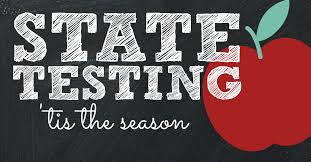Monday: Timed Write Modernist Features in The Great Gatsby by F. Scott Fitzgerald
Unit Goal: By reading and annotating F. Scott Fitzgerald’s novel The Great Gatsby, students will be able to 1.) evaluate philosophical attitudes and views of the American Dream and 2.) identify Modernist features of subversion, alienation, and antiheroes 3.) analyze the use of symbolism and archetype to convey theme.
Objectives:
– Analyze use of symbols to communicate Modernist attitudes.
– Identify Modernist features.
– Evaluate the use of feminine archetypes.
Agenda: Timed Write Essay (Rubric)
Tuesday: Timed Write Assessment Modernist Features in The Great Gatsby by F. Scott Fitzgerald
Unit Goal: By reading and annotating F. Scott Fitzgerald’s novel The Great Gatsby, students will be able to 1.) evaluate philosophical attitudes and views of the American Dream and 2.) identify Modernist features of subversion, alienation, and antiheroes 3.) analyze the use of symbolism and archetype to convey theme.
Objectives:
– Analyze use of symbols to communicate Modernist attitudes.
– Identify Modernist features.
– Evaluate the use of feminine archetypes.
Agenda: 1. Essay Peer Revision and (Essay Presentation)
Wednesday: Timed Write Reflection & Self Reflection
Unit Goal: By reading and annotating F. Scott Fitzgerald’s novel The Great Gatsby, students will be able to 1.) evaluate philosophical attitudes and views of the American Dream and 2.) identify Modernist features of subversion, alienation, and antiheroes 3.) analyze the use of symbolism and archetype to convey theme.
Objectives:
– Analyze use of symbols to communicate Modernist attitudes.
– Identify Modernist features.
– Evaluate the use of feminine archetypes.
Agenda: 1. Essay Revision Reflection: Final Draft due in class Monday, May 8 (Essay Presentation) 2. What makes a good film adaptation? 3. Watch Opening Scene of The Great Gatsby (1974)
Thursday: Adaptation Comparison
Unit Goal: Discuss what makes a successful film adaptation of a literary text by comparing The Great Gatsby directed by Jack Clayton (1974) and The Great Gatsby directed by Baz Luhrmann (2013)
Objective: Consider two portrayals of the same literary text through film to examine what gives characters lasting power and why and how they evolve over time.
Agenda: 1. Compare The Great Gatsby (1974) and The Great Gatsby (2013)
Homework: Essay Revision: Final Draft due in class Monday, May 8 (Essay Presentation)
Friday: Socratic Chairs
Unit Goal: Discuss what makes a successful film adaptation of a literary text by comparing The Great Gatsby directed by Jack Clayton (1974) and The Great Gatsby directed by Baz Luhrmann (2013)
Objective: Consider two portrayals of the same literary text through film to examine what gives characters lasting power and why and how they evolve over time.
Agenda: 1. Discuss The Great Gatsby (1974) and The Great Gatsby (2013). Which is GREATEST?
Homework: Essay Revision: Final Draft due in class Monday, May 8 (Essay Presentation)
